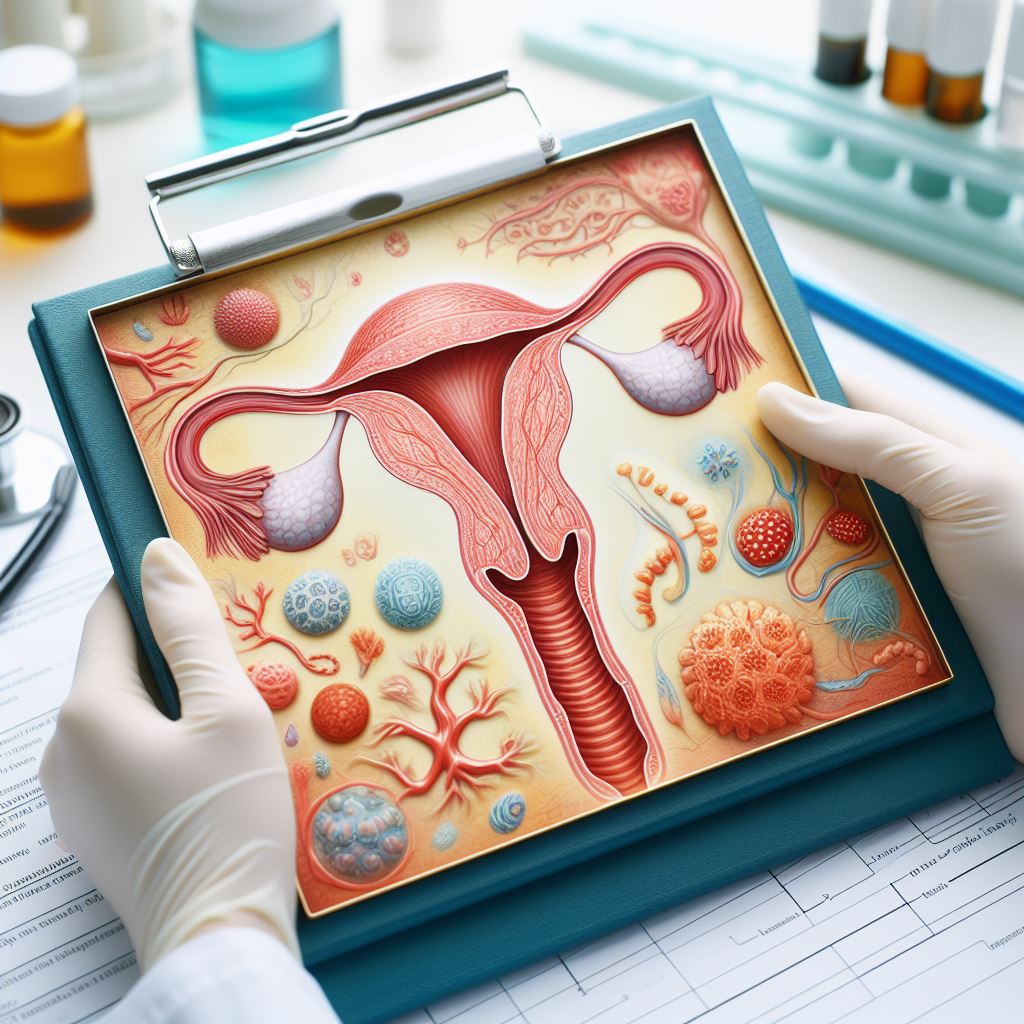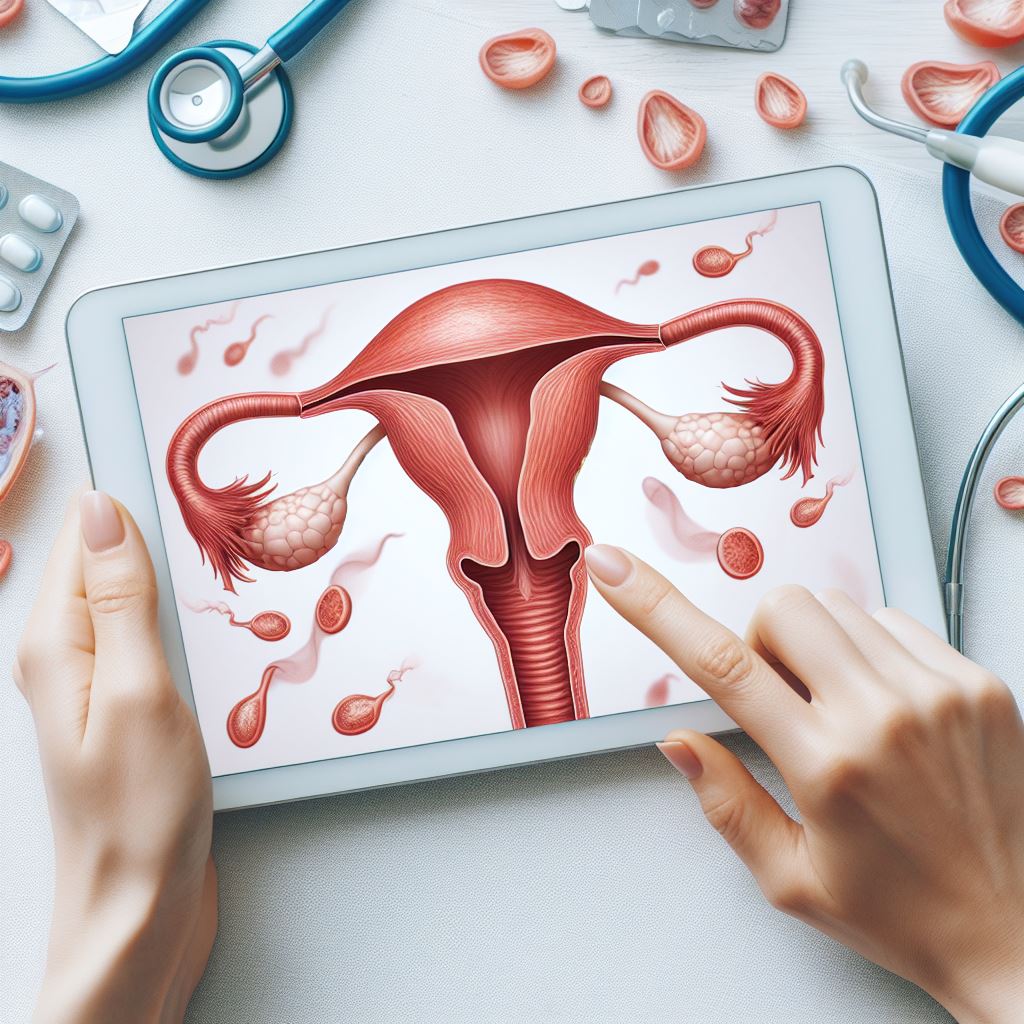Introduction
Hormones are chemical messengers that regulate various functions in the body, such as growth, metabolism, mood, and reproduction. When the hormones are in balance, the body works optimally and the chances of conceiving are higher. However, when the hormones are out of balance, it can affect the fertility of both men and women. In this blog post, we will explore the causes, symptoms, and treatments of hormonal imbalances and how they can impact fertility. We will also share some tips on how to achieve a balanced fertility through natural and holistic methods.
What Causes Hormonal Imbalances?
Hormonal imbalances can be caused by a variety of factors, such as genetics, lifestyle, environmental toxins, stress, medications, and underlying medical conditions. Some of the common causes of hormonal imbalances that affect fertility are:
- Polycystic ovary syndrome (PCOS): PCOS is a condition where the ovaries produce excess androgens (male hormones), which can interfere with ovulation and cause irregular periods, acne, excess hair growth, and weight gain. PCOS is one of the most common causes of infertility in women, affecting up to 10% of women of reproductive age.
- Thyroid disorders: The thyroid gland produces hormones that regulate the metabolism and energy levels of the body. When the thyroid gland is underactive (hypothyroidism) or overactive (hyperthyroidism), it can affect the production and balance of other hormones, such as estrogen, progesterone, and luteinizing hormone (LH). This can lead to menstrual irregularities, ovulation problems, low libido, and miscarriage.
- Endometriosis: Endometriosis is a condition where the endometrial tissue, which normally lines the uterus, grows outside the uterus, such as on the ovaries, fallopian tubes, or pelvic organs. This can cause inflammation, pain, scarring, and adhesions, which can impair the function of the reproductive organs and reduce the chances of conception. Endometriosis affects about 10% of women of reproductive age and is associated with a higher risk of infertility.
- Low sperm count or quality: Male infertility can also be caused by hormonal imbalances, such as low testosterone, high estrogen, or high prolactin. These hormones can affect the production, motility, and morphology of sperm, making it harder for them to fertilize an egg. Male infertility can also be influenced by lifestyle factors, such as smoking, alcohol, stress, obesity, and exposure to environmental toxins.
What are the Symptoms of Hormonal Imbalances?
Hormonal imbalances can manifest in different ways, depending on the type and severity of the imbalance and the individual’s characteristics. Some of the common symptoms of hormonal imbalances that can affect fertility are:
- Irregular or absent periods: The menstrual cycle is regulated by a complex interplay of hormones, such as estrogen, progesterone, follicle-stimulating hormone (FSH), and LH. When these hormones are out of sync, it can result in irregular, heavy, light, or missed periods, which can indicate ovulation problems or anovulation (lack of ovulation).
- Changes in cervical mucus: Cervical mucus is a fluid secreted by the cervix that changes in quantity and quality throughout the menstrual cycle. It helps to nourish and transport the sperm to the egg and indicates the fertile window of the cycle. When the hormones are imbalanced, the cervical mucus can become scanty, thick, or hostile, making it harder for the sperm to reach the egg.
- Changes in basal body temperature (BBT): BBT is the lowest body temperature measured in the morning before getting out of bed. It reflects the changes in the progesterone levels throughout the cycle. Before ovulation, the BBT is low, and after ovulation, it rises by about 0.5°F and stays high until the next period. When the hormones are imbalanced, the BBT can be erratic, low, or high, indicating a problem with ovulation or progesterone production.
- Mood swings, anxiety, or depression: Hormones can also affect the mood and mental health of the individual. When the hormones are imbalanced, it can cause fluctuations in the neurotransmitters, such as serotonin, dopamine, and norepinephrine, which regulate the mood, emotions, and cognition. This can lead to mood swings, irritability, anxiety, or depression, which can affect the quality of life and the relationship with the partner.
- Low libido or sexual dysfunction: Hormones can also influence the sexual desire and function of the individual. When the hormones are imbalanced, it can cause a decrease in libido, erectile dysfunction, vaginal dryness, or pain during intercourse, which can affect the frequency and quality of sexual activity and the chances of conception.
How are Hormonal Imbalances Diagnosed and Treated?
If you suspect that you have a hormonal imbalance that is affecting your fertility, you should consult your doctor for a proper diagnosis and treatment. Your doctor may perform a physical examination, ask about your medical history, symptoms, and lifestyle, and order some tests, such as blood tests, urine tests, ultrasound, or laparoscopy, to check your hormone levels and the condition of your reproductive organs. Depending on the cause and severity of your hormonal imbalance, your doctor may prescribe some medications, such as hormonal pills, injections, or patches, to restore the balance and stimulate ovulation or sperm production. Your doctor may also recommend some assisted reproductive techniques, such as intrauterine insemination (IUI) or in vitro fertilization (IVF), to increase your chances of conception.
However, medications and assisted reproductive techniques are not the only options to treat hormonal imbalances and improve fertility. There are also some natural and holistic methods that can help you achieve a balanced fertility, such as:
- Diet and nutrition: Eating a balanced and nutritious diet can help you maintain a healthy weight, regulate your blood sugar and insulin levels, and provide your body with the essential vitamins, minerals, antioxidants, and omega-3 fatty acids that support hormonal health and fertility. Some of the foods that can help you balance your hormones and boost your fertility are: leafy greens, cruciferous vegetables, berries, nuts, seeds, legumes, whole grains, lean protein, fatty fish, and dairy products. You should also avoid or limit foods that can disrupt your hormones and harm your fertility, such as: processed foods, refined sugars, trans fats, caffeine, alcohol, and soy products.
- Exercise and physical activity: Engaging in regular exercise and physical activity can help you improve your blood circulation, reduce stress, balance your hormones, and enhance your fertility. Exercise can also help you prevent or manage conditions that can cause hormonal imbalances, such as PCOS, thyroid disorders, obesity, and diabetes. However, you should not overdo it, as too much or too intense exercise can have the opposite effect and impair your fertility. Aim for at least 30 minutes of moderate exercise, such as walking, swimming, cycling, or yoga, three to five times a week.
- Stress management and relaxation: Stress can have a negative impact on your hormonal balance and fertility, as it can trigger the release of cortisol, the stress hormone, which can interfere with the production and function of other hormones, such as estrogen, progesterone, testosterone, and LH. Stress can also affect your mood, sleep, appetite, libido, and immune system, which can further impair your fertility. Therefore, it is important to manage your stress levels and practice some relaxation techniques, such as meditation, breathing exercises, massage, acupuncture, aromatherapy, or music therapy, to calm your mind and body and restore your hormonal harmony and fertility.
- Herbs and supplements: There are some herbs and supplements that can help you balance your hormones and improve your fertility naturally, such as: vitex, maca, ashwagandha, shatavari, dong quai, black cohosh, red clover, evening primrose oil, zinc, selenium, magnesium, vitamin B6, vitamin C, vitamin D, vitamin E, and folic acid. However, you should consult your doctor before taking any herbs or supplements, as they may interact with your medications or have some side effects or contraindications.
Conclusion
Hormonal imbalances can be a major cause of fertility issues for both men and women, as they can affect the function and health of the reproductive organs and the quality and quantity of the gametes. Hormonal imbalances can be caused by various factors, such as genetics, lifestyle, environmental toxins, stress, medications, and underlying medical conditions, and can manifest in different symptoms, such as irregular or absent periods, changes in cervical mucus or BBT, mood swings, anxiety, depression, low libido, or sexual dysfunction. Hormonal imbalances can be diagnosed and treated by your doctor, who may prescribe some medications or assisted reproductive techniques to restore the balance and increase your chances of conception. However, you can also try some natural and holistic methods to achieve a balanced fertility, such as eating a healthy diet, exercising regularly, managing your stress, and taking some herbs or supplements. By following these tips, you can optimize your hormonal health and fertility and get closer to your dream of having a baby.






